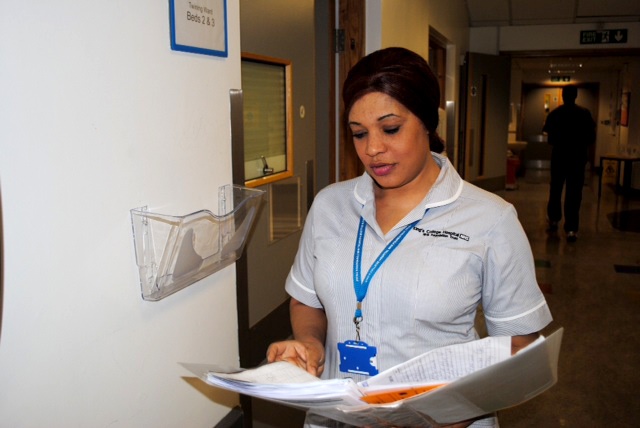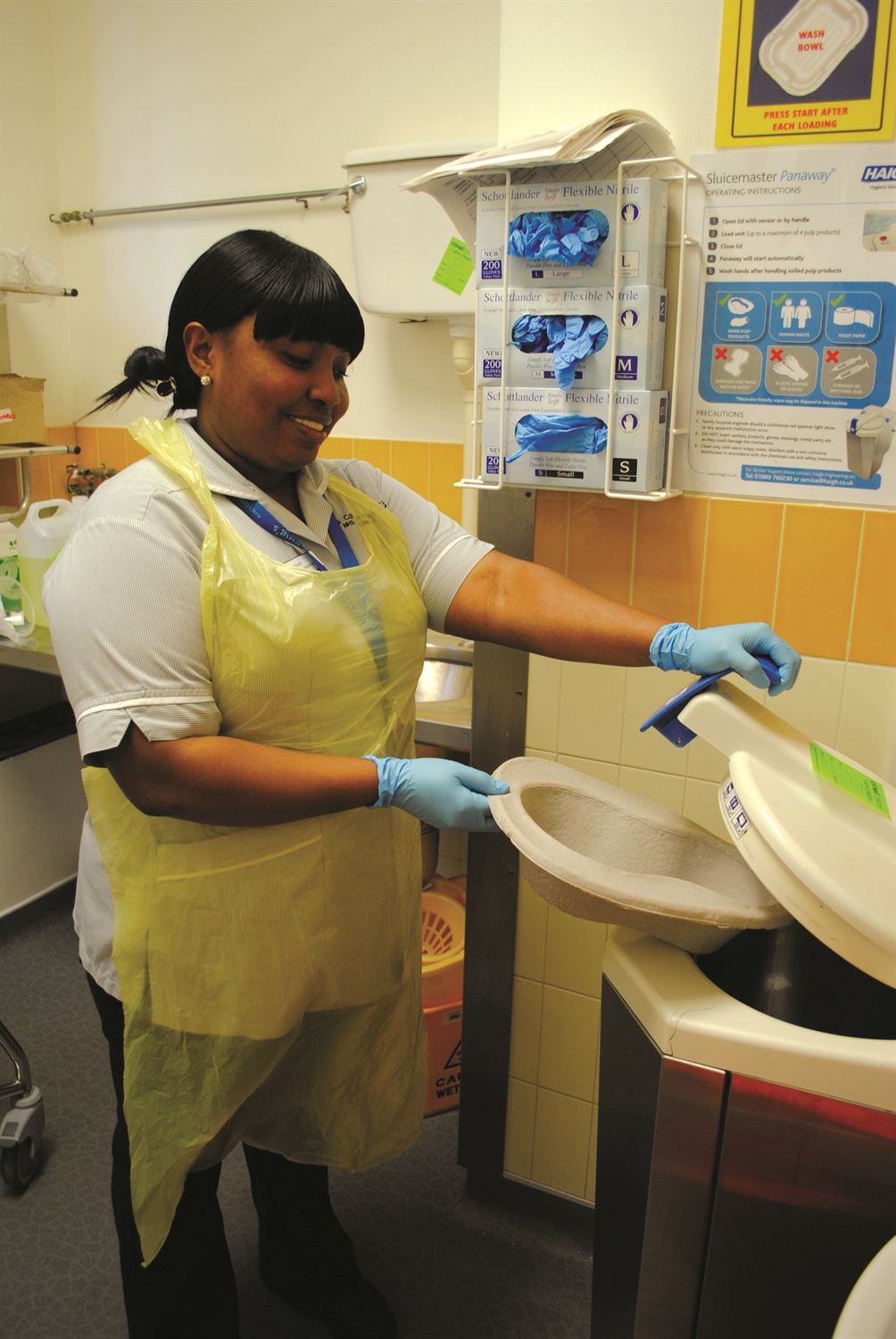01.04.15
How healthcare assistants can transform cancer patient experience
Source: NHE March/April 15
Jagtar Dhanda, head of inclusion at Macmillan Cancer Support, discusses the role of healthcare assistance in the patient experience.
There are currently 1.3 million frontline unregistered staff in the UK who deliver the bulk of care in hospitals, care homes and individuals’ own homes. Included in this figure are healthcare assistants (HCAs), who are often those with the most direct contact with patients, spending more time at patients’ bedsides than nurses or any other healthcare professionals. Yet HCAs are given the least amount of support and training to enable them to provide the compassionate care they want to deliver.
Two years ago, the Francis Inquiry report into the failings at the Mid Staffordshire NHS Foundation Trust was published. This report exposed a sub-culture within parts of the NHS that repeatedly and severely compromised patient safety, experience and quality of care. At the most extreme, it led to patients dying needlessly due to dehydration and exposure to severe neglect.
Politicians and NHS leaders say time and again that we can’t let another incident such as this happen. At Macmillan our focus is on how the 2.5 million people living with cancer today are cared for, and how they will be cared for in the future when this number rises to four million by 2030. With both these commitments in mind, there is something inherently wasteful about not unlocking the capacity and skillset of the entire workforce, including HCAs, to ensure that every person is treated with dignity and respect – which is why Macmillan has recently launched a programme to achieve just this.

Equal footing
HCAs aren’t registered in the same way as clinicians and nurses, which can lead to a large section of the workforce being perceived as not being on an equal footing, especially around providing relational care. HCAs provide essential care, serving food, washing patients and cleaning wards, for example; yet the definition of their role is reduced to providing ‘basic care’.
The importance of this work is not always acknowledged on the ground, at a time when research is beginning to indicate that relational aspects of care may be what patients value the most.
Patients and relatives comment more often on aspects of experiences and care mediated through interpersonal relationships between staff, patients and relatives than on the technical aspects of treatment.
If these are the aspects we are finding patients value the most, then it is counterintuitive to put up invisible barriers that obstruct HCAs from providing the care that they can, and want to do. We know that given an opportunity to reflect on patient experience, HCAs continuously demonstrate how well they can respond to patients’ needs, such as communicating sensitively, or listening to patients.
Feeling under-valued
Last year Macmillan published a report – ‘Dignity must not be denied: how we can support and empower NHS staff to deliver a good experience of care to patients’ – which included a survey of 204 healthcare professionals, including 50 HCAs as well as oncology nurses, GPs and oncology consultants. More than half (54%) of HCAs said they didn’t feel their work was valued, whilst just under half (48%) said they didn’t feel respected. More than one in three (36%) said they had provided feedback that had not been acted on.
This cultural attitude of undervaluing HCAs also often leads to more concrete barriers in the NHS, preventing them from consistently delivering high-quality care. Findings from ‘The Cavendish Review’ and more recently ‘Shape of Caring review’ indicate that HCAs have the least investment in their professional development and often feel they are unheard and under-valued.
Our research also found that HCAs get the least support and training of all healthcare professionals. Over three-fifths (62%) of HCAs in our poll said they haven’t had adequate training on how to have sensitive conversations with cancer patients and their carers. This was much higher than the average answer across all healthcare professionals surveyed. This significant gap in training for HCAs is also despite the fact that almost four-fifths (78%) said they wanted more training in how to have sensitive conversations with patients.

Impact on care
We know that in NHS organisations where all staff are empowered in their work and involved in decision-making, the staff deliver better-quality care. In practice this means that organisations with high staff engagement report lower mortality rates, better patient experience and lower rates of sickness absence and staff turnover.
The case to empower and support all NHS staff – including HCAs – as a means to improving patients’ experiences of care and their clinical outcomes is compelling.
Care and Compassion Programme
HCAs are a vital part of the workforce, and are required to deliver essential aspects of care today, and increasingly so in the future. Macmillan has recently launched a first-of-its-kind programme specially designed for HCAs – the Care and Compassion Programme. It aims to improve the wellbeing, engagement and training of HCAs, in turn improving cancer patient experience. We’re passionate that if we can harness their enthusiasm, knowledge and expertise, cancer patient experience could be transformed, with HCAs playing a leading role in educating other staff and changing culture in the NHS.
Macmillan’s Care and Compassion programme currently exists at two sites – King’s College London and Imperial College London – with a view to offering a transferable version of it across a variety of health and social care settings once it has been refined. It includes a six-month development programme for HCAs, providing a total of 21 hours of face-to-face development time for each participant. It also includes resources to support HCAs, such as a reflective diary and access to online Macmillan resources, as well as enabling mentor support within the participant’s organisation.
HCAs have played a part in developing the programme themselves through small group discussions, one-to-one interviews, surveys and workshops. As HCAs often interact with patients in instances where privacy and dignity become more pronounced, such as bathing, there is an opportunity on the programme to use real examples of how to further protect the dignity of the patient and through this to encourage peer reflection as a method of improvement. HCAs are often uniquely placed to see the real impact of relational care where a simple conversation, smile or holding of a hand lays the foundations for improved patient experience.

Seeking development opportunities
The programme is in early stages at the moment. However, we hope that the set-up and structure of the Care and Compassion Programme itself should demonstrate that organisations involved are supporting their HCAs – for instance, if they are releasing HCAs to attend the programme and giving them the ongoing support that the programme should provide. This should help ensure that HCAs feel like a valued and equal part of the workforce. We also hope the programme will encourage HCAs to seek development opportunities beyond skill training and academic courses, as it should make the most of experiential learning followed by workplace practice and feedback.
It is invaluable that Health Education England (HEE) has itself acknowledged that “the importance of this [HCA] workforce in the delivery of high-quality patient care cannot be overstated – but, alongside this, we must not underestimate the challenge we face if we are serious about supporting and investing in this ‘forgotten tribe’”.
Talent for Care strategy
We’ve been pleased to see that HEE’s consultation period leading up to the launch of the strategy was extensive and informative, taking on board many of Camilla Cavendish’s concerns. As it moves forward with its wider development programme for the support workforce through its Care Certificate and the range of other workstreams within its Talent for Care strategy, Macmillan’s programme reinforces and mirrors HEE’s values.
For example, as HEE wants to ensure that every HCA is supported through learning and development, we would see training in aspects of delivering relational care as a key component of any development programme. This ensures that the HCA workforce is provided with a balance of practical and relational skills, building their own confidence as well as competence.
Fulfilling role
Sometimes the best solution to a daunting challenge turns out to be something that is well-known but somehow overlooked – our programme is innovative but simple. HCAs have shown us that how care can be delivered no matter where you are in the NHS, no matter what job you are doing.
If we continue to relegate the role of HCAs to the delivery of ‘basic care’, we run the risk of discouraging people from continuing and excelling in the role in and of itself. The alternative is that we instead let the HCA fulfil a role where it inspires and educates others on the fundamentals of relational care.

Above: Jagtar Dhanda, head of inclusion at Macmillan Cancer Support
Tell us what you think – have your say below or email [email protected]